14 start with H start with H
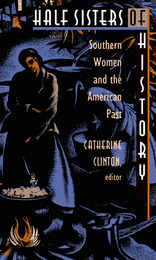
This collection of essays by pioneering scholars surveys the roots and development of southern women’s history and examines the roles of white women and women of color across the boundaries of class and social status from the founding of the nation to the present. Authors including Anne Firor Scott, Elizabeth Fox-Genovese, Jacquelyn Dowd Hall, and Nell Irwin Painter, among others, analyze women’s participation in prewar slavery, their representation in popular fiction, and their involvement in social movements. In no way restricted to views of the plantation South, other essays examine the role of women during the American Revolution, the social status of Native American women, the involvement of Appalachian women in labor struggles, and the significance of women in the battle for civil rights. Because of their indelible impact on gender relations, issues of class, race, and sexuality figure centrally in these analyses.
Half Sisters of History will be important not only to women’s historians, but also to southern historians and women’s studies scholars. It will prove invaluable to anyone in search of a full understanding of the history of women, the South, or the nation itself.
Contributors. Catherine Clinton, Sara Evans, Elizabeth Fox-Genovese, Jacquelyn Dowd Hall, Jacqueline Jones, Suzanne D. Lebsock, Nell Irwin Painter, Theda Perdue, Anne Firor Scott, Deborah Gray White
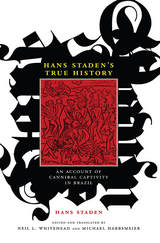
Staden’s narrative is a foundational text in the history and European “discovery” of Brazil, the earliest European account of the Tupi Indians, and a touchstone in the debates on cannibalism. Yet the last English-language edition of Staden’s True History was published in 1929. This new critical edition features a new translation from the sixteenth-century German along with annotations and an extensive introduction. It restores to the text the fifty-six woodcut illustrations of Staden’s adventures and final escape that appeared in the original 1557 edition.
In the introduction, Neil L. Whitehead discusses the circumstances surrounding the production of Staden’s narrative and its ethnological significance, paying particular attention to contemporary debates about cannibalism. Whitehead illuminates the value of Staden’s True History as an eyewitness account of Tupi society on the eve before its collapse, of ritual war and sacrifice among Native peoples, and of colonial rivalries in the region of Rio de Janeiro. He chronicles the history of the various editions of Staden’s narrative and their reception from 1557 until the present. Staden’s work continues to engage a wide range of readers, not least within Brazil, where it has recently been the subject of two films and a graphic novel.

Very little has been written about Harold Ickes, one of the most important, complex, and colorful figures of the New Deal. By any standards his public career was remarkable. For thirteen turbulent years as Interior Secretary and as head of the Public Works Administration he was an uncommonly effective official and a widely acknowledged leader of liberal reform. As the foremost conservationist of his time, he saved millions of acres of land from decimation. He was matchless, too, as a fighter for just causes, and used his formidable talent for invective and his inexhaustible supply of moral fervor to flay representatives of prejudice and self-interest, whether in the cause of Negro rights or that of the common man against economic royalists.
Despite a long and distinguished public life, Ickes is an enigma because of his inability to control his rage, to temper his public criticism, to respond objectively to situations. At the heart of his public and private life was constant moral outrage. This astute study by a historian and a psychologist probes the sources and consequences of Ickes' abnormal combativeness.
White and Maze uncover the psychological imperatives and conscious ideals of Ickes' unknown private life that illuminate his public career. Some of the episodes include sadistic attacks by an elder brother; young Harold contemplating shooting his father; bitter and physical brawls with his imperious, wealthy, and previously married socialite wife, Anna Wilmarth Thompson of Chicago; and thoughts of suicide.
Richard Polenberg calls this book "Superb [and] one of the most informative and interesting I have read on the New Deal. The story shows Ickes' weaknesses and flaws, but it puts them in context. The authors have not tried to explain everything Ickes ever did wholly in psychological terms, but the particular insights they bring to bear help present a rounded view of the man. The book is beautifully written."

In the 1850s, "Drapetomania" was the medical term for a disease found among black slaves in the United States. The main symptom was a strange desire to run away from their masters. In earlier centuries gout was understood as a metabolic disease of the affluent, so much so that it became a badge of uppercrust honor—and a medical excuse to avoid hard work. Today, is there such a thing as mental illness, or is mental illness just a myth? Is Alzheimer's really a disease? What is menopause—a biological or a social construction?
Historically one can see that health, disease, and illness are concepts that have been ever fluid. Modern science, sociology, philosophy, even society—among other factors—constantly have these issues under microscopes, learning more, defining and redefining ever more exactly. Yet often that scrutiny, instead of leading toward hard answers, only leads to more questions. Health, Disease, and Illness brings together a sterling list of classic and contemporary thinkers to examine the history, state, and future of ever-changing "concepts" in medicine.
Divided into four parts—Historical Discussions; Characterizing Health, Disease, and Illness; Clinical Applications of Health and Disease; and Normalcy, Genetic Disease, and Enhancement: The Future of the Concepts of Health and Disease—the reader can see the evolutionary arc of medical concepts from the Greek physician Galen of Pergamum (ca. 150 ce) who proposed that "the best doctor is also a philosopher," to contemporary discussions of the genome and morality. The editors have recognized a crucial need for a deeper integration of medicine and philosophy with each other, particularly in an age of dynamically changing medical science—and what it means, medically, philosophically, to be human.
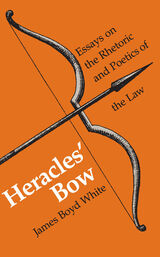
White’s essays, though bound by a common perspective, are thematically varied. Each of these pieces makes eloquent and insightful reading. Taken as a whole, they establish, by triangulation, a position from which they all proceed: a view of poetry, law, and rhetoric as essentially synonymous. Only when we perceive the links between these processes, White stresses, can we begin to unite the concerns of truth, beauty, and justice in a single field of action and expression.

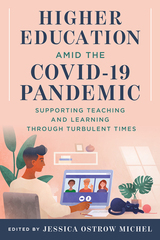
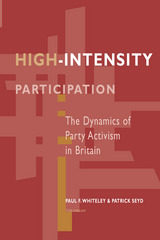
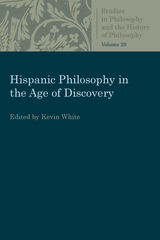

Hesiod (Hesiodus), an epic poet apparently of the eighth century BC, was born in Asia Minor but moved to Boeotia in central Greece. He was regarded by later Greeks as a contemporary of Homer.
Three works survive under Hesiod's name: (1) "Works and Days," addressed to his brother. In it he gives us the allegories of the two Strifes, and the myth of Pandora; stresses that every man must work; describes the accepted Five Ages of the world; delivers moral advice; surveys in splendid style a year's work on a farm; gives precepts on navigation; and propounds lucky and unlucky days. (2) "Theogony," a religious work about the rise of the gods and the universe from Chaos to the triumph of Zeus, and about the progeny of Zeus and of goddesses in union with mortal men. (3) "The Shield" (not by Hesiod), an extract from a "Catalogue of Women," the subject being Alcmena and her son Heracles and his contest with Cycnus, with a description of Heracles' shield. All three works are of great literary interest.
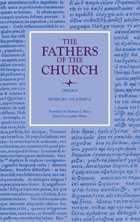
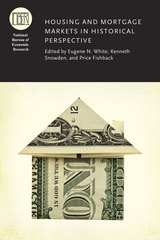
This volume begins to answer these questions, providing a much-needed context for understanding recent events by examining how historical housing and mortgage markets worked—and how they sometimes failed. Renowned economic historians Eugene N. White, Kenneth Snowden, and Price Fishback survey the foundational research on housing crises, comparing that of the 1930s to that of the early 2000s in order to authoritatively identify what contributed to each crisis. Later chapters explore notable historical experiences with mortgage securitization and the role that federal policy played in the surge in home ownership between 1940 and 1960. By providing a broad historical overview of housing and mortgage markets, the volume offers valuable new insights to inform future policy debates.

A chilling, timely reminder of the moral and human costs of racial hatred.
What happens when a delusional white supremacist and his army of followers decide to create a racially pure “Little Europe” within a rural Tennessee community? As the town’s residents grapple with their new reality, minor skirmishes escalate and dirty politics, scandals, and a cataclysmic chain of violence follows. In this uncanny reflection of our time, award-winning novelist Charles Dodd White asks whether Americans can save themselves from their worst impulses and considers the consequences when this salvation comes too late.
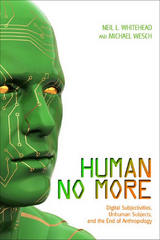
Online worlds have recently thrown into question the traditional anthropological conception of place-based ethnography. They break definitions, blur distinctions, and force us to rethink the notion of the "subject." Human No More asks how digital cultures can be integrated and how the ethnography of both the "unhuman" and the "digital" could lead to possible reconfiguring the notion of the "human."
This provocative and groundbreaking work challenges fundamental assumptions about the entire field of anthropology. Cross-disciplinary research from well-respected contributors makes this volume vital to the understanding of contemporary human interaction. It will be of interest not only to anthropologists but also to students and scholars of media, communication, popular culture, identity, and technology.
READERS
Browse our collection.
PUBLISHERS
See BiblioVault's publisher services.
STUDENT SERVICES
Files for college accessibility offices.
UChicago Accessibility Resources
home | accessibility | search | about | contact us
BiblioVault ® 2001 - 2024
The University of Chicago Press









